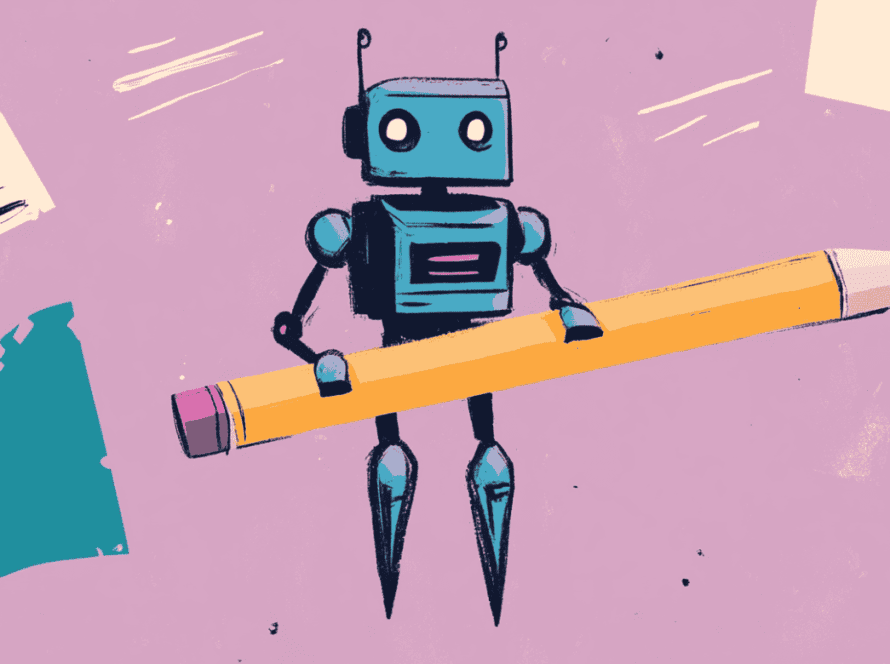AI is reshaping the world, from remodeling healthcare to reforming training. It’s tackling long-standing challenges and opening prospects we by no means thought doable. Knowledge is on the centre of this revolution—the gasoline that powers each AI mannequin. It’s what allows these methods to make predictions, discover patterns, and ship options that influence our on a regular basis lives.
However, whereas this abundance of knowledge is driving innovation, the dominance of uniform datasets—sometimes called knowledge monocultures—poses vital dangers to range and creativity in AI growth. That is like farming monoculture, the place planting the identical crop throughout massive fields leaves the ecosystem fragile and susceptible to pests and illness. In AI, counting on uniform datasets creates inflexible, biased, and sometimes unreliable fashions.
This text dives into the idea of knowledge monocultures, inspecting what they’re, why they persist, the dangers they bring about, and the steps we will take to construct AI methods which might be smarter, fairer, and extra inclusive.
Understanding Knowledge Monocultures
A knowledge monoculture happens when a single dataset or a slender set of knowledge sources dominates the coaching of AI methods. Facial recognition is a well-documented instance of knowledge monoculture in AI. Research from MIT Media Lab discovered that fashions skilled mainly on pictures of lighter-skinned people struggled with darker-skinned faces. Error charges for darker-skinned girls reached 34.7%, in comparison with simply 0.8% for lighter-skinned males. These outcomes spotlight the influence of coaching knowledge that didn’t embrace sufficient range in pores and skin tones.
Comparable points come up in different fields. For instance, massive language fashions (LLMs) similar to OpenAI’s GPT and Google’s Bard are skilled on datasets that closely depend on English-language content material predominantly sourced from Western contexts. This lack of range makes them much less correct in understanding language and cultural nuances from different elements of the world. International locations like India are creating LLMs that higher replicate native languages and cultural values.
This concern could be important, particularly in fields like healthcare. For instance, a medical diagnostic device skilled mainly on knowledge from European populations might carry out poorly in areas with totally different genetic and environmental elements.
The place Knowledge Monocultures Come From
Knowledge monocultures in AI happen for quite a lot of causes. In style datasets like ImageNet and COCO are huge, simply accessible, and extensively used. However they typically replicate a slender, Western-centric view. Amassing various knowledge isn’t low-cost, so many smaller organizations depend on these present datasets. This reliance reinforces the shortage of selection.
Standardization can also be a key issue. Researchers typically use widely known datasets to check their outcomes, unintentionally discouraging the exploration of different sources. This development creates a suggestions loop the place everybody optimizes for a similar benchmarks as an alternative of fixing real-world issues.
Generally, these points happen because of oversight. Dataset creators may unintentionally pass over sure teams, languages, or areas. For example, early variations of voice assistants like Siri didn’t deal with non-Western accents nicely. The explanation was that the builders didn’t embrace sufficient knowledge from these areas. These oversights create instruments that fail to fulfill the wants of a worldwide viewers.
Why It Issues
As AI takes on extra outstanding roles in decision-making, knowledge monocultures can have real-world penalties. AI fashions can reinforce discrimination once they inherit biases from their coaching knowledge. A hiring algorithm skilled on knowledge from male-dominated industries may unintentionally favour male candidates, excluding certified girls from consideration.
Cultural illustration is one other problem. Advice methods like Netflix and Spotify have typically favoured Western preferences, sidelining content material from different cultures. This discrimination limits person expertise and curbs innovation by retaining concepts slender and repetitive.
AI methods also can grow to be fragile when skilled on restricted knowledge. In the course of the COVID-19 pandemic, medical fashions skilled on pre-pandemic knowledge did not adapt to the complexities of a worldwide well being disaster. This rigidity could make AI methods much less helpful when confronted with surprising conditions.
Knowledge monoculture can result in moral and authorized points as nicely. Firms like Twitter and Apple have confronted public backlash for biased algorithms. Twitter’s image-cropping device was accused of racial bias, whereas Apple Card’s credit score algorithm allegedly supplied decrease limits to girls. These controversies harm belief in merchandise and lift questions on accountability in AI growth.
The way to Repair Knowledge Monocultures
Fixing the issue of knowledge monocultures calls for broadening the vary of knowledge used to coach AI methods. This process requires creating instruments and applied sciences that make amassing knowledge from various sources simpler. Initiatives like Mozilla’s Frequent Voice, for example, collect voice samples from individuals worldwide, making a richer dataset with numerous accents and languages—equally, initiatives like UNESCO’s Knowledge for AI give attention to together with underrepresented communities.
Establishing moral tips is one other essential step. Frameworks just like the Toronto Declaration promote transparency and inclusivity to make sure that AI methods are truthful by design. Robust knowledge governance insurance policies impressed by GDPR laws also can make a giant distinction. They require clear documentation of knowledge sources and maintain organizations accountable for guaranteeing range.
Open-source platforms also can make a distinction. For instance, hugging Face’s Datasets Repository permits researchers to entry and share various knowledge. This collaborative mannequin promotes the AI ecosystem, decreasing reliance on slender datasets. Transparency additionally performs a big position. Utilizing explainable AI methods and implementing common checks will help determine and proper biases. This clarification is important to maintain the fashions each truthful and adaptable.
Constructing various groups is likely to be essentially the most impactful and simple step. Groups with different backgrounds are higher at recognizing blind spots in knowledge and designing methods that work for a broader vary of customers. Inclusive groups result in higher outcomes, making AI brighter and fairer.
The Backside Line
AI has unbelievable potential, however its effectiveness depends upon its knowledge high quality. Knowledge monocultures restrict this potential, producing biased, rigid methods disconnected from real-world wants. To beat these challenges, builders, governments, and communities should collaborate to diversify datasets, implement moral practices, and foster inclusive groups.
By tackling these points straight, we will create extra clever and equitable AI, reflecting the variety of the world it goals to serve.


